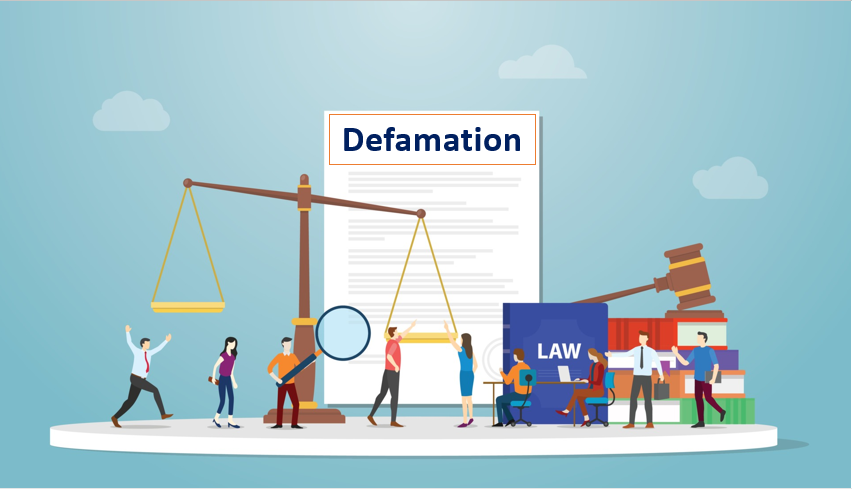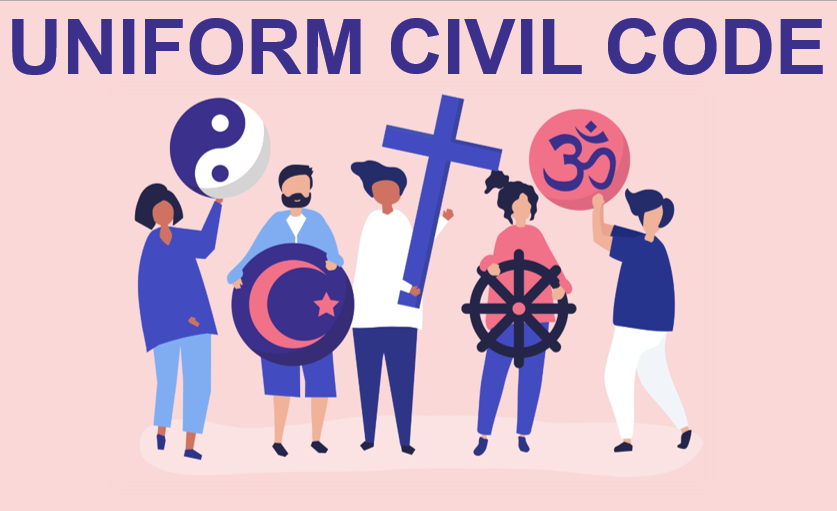Published On: 22nd May, 2024

Authored By: Priya Das
Bikash Bharati Law College, University of Calcutta
ABSTRACT:
Negligence includes breach of duty. Sometimes, several professionals, such as doctors and lawyers, neglect their duty. Professionals have special skills that make them perfect in their work. If any negligence occurs while performing their duty, they should be liable for it. Their actions must be performed with proper care and caution. When negligence occurs, there must be a test to see whether negligence is present or not. In the case of an ordinary skilled man, it doesn’t always require the highest expert skill. If his ordinary skill is enough to cope with the situation, then it is sufficient to use ordinary skill. The performance of the task must be according to the nature of the occurrence. Depending upon the situation of the case, the person has to perform his part, the degree of care must not be too high or low, but according to the circumstances. According to the law, the person must not be guilty of negligence just because he doesn’t follow other prescribed treatment recommended by another professional. In the medical field, the negligence of professionals arises when they don’t perform their duty with proper care and responsibility, not because they perform differently or if they acted in accordance with a responsible body of skilled medical men, whether there has been an adverse opinion excited among them. In this article, we will discuss the negligence that occurred in the medical field, the duty of a doctor and their duty, etc.
INTRODUCTION:
In the law of tort, the term negligence is defined as failure to do an act due to carelessness, which a prudent person would perform. The failure is mainly due to proper care and caution. Negligence is considered as a breach of duty which a reasonable person would act in the same situation. If any negligence happens, then the plaintiff has the power to take compensation for the damages caused by the defendant due to his carelessness. The term negligence falls under civil law.
In the medical field, sometimes negligence can occur. In order to prove negligence against practitioners, there are some points that need to be observed, such as, whether the patient would be served better or not. In the medical field, the medical practitioner is supposed to have special knowledge according to their duty. In order to fulfill his duty properly, a degree of care and caution is needed. If the practitioner doesn’t fulfill his duty with proper care and, due to which, there have been miserable consequences that happen to the patient, he is subject to the negligence of duty.
Smt. Soniya Bai Ramswaroop Morya v. Dr. Pramod Sharma[1], in this case, during the surgery was done, the fact was not taken care that the patient was suffering from hepatitis. It was reported that the operation was performed when the patient was suffering from jaundice. As a result, after the operation was done, the condition of the patient became serious. M. P. High Court held that there had been negligence on behalf of the doctors, and they were liable for medical negligence.
In another case, Poonam Verma v. Ashwin Patel and Ors.[2], were doctors entitled to practice homeopathy. However he prescribed an allopathic medicine for the patient. The patient died as a consequence. As the doctor was registered to practice homeopathy only, and he prescribed allopathic medicine, he was held liable for his negligence. His act was considered medical negligence and actionable as per civil law.
ESSENTIALS OF MEDICAL NEGLIGENCE:
In order to prove medical negligence, a few points have to be fulfilled. There are several essentials of negligence, such as:
- Duty of care to the plaintiff
- Breach of duty by the defendant
- The plaintiff suffered damage due to a breach of duty by the defendant.
Those essentials are also applied in the case of medical negligence. If a medical practitioner fails to fulfill any of the aforesaid parts, he is held liable for negligence.
In the case of Tulasi Bibi v. State of Orissa[3], the patient died within ten minutes in the hospital after the administration of an injection. The injection was administered by a 1st year nursing student. It was held that the patient died due to negligence on the part of hospital staff as a first-year student is not allowed to administer an injection without any advice from the nurse to patient. In Dr. N. Ummar v. K. M. Hameed[4], where the patient was suffering from cancer, but a biopsy was conducted on the patient. As a result of wrong treatment, the patient died. The court held that the pathologist was liable who conducting the biopsy on the patient. This was a case of clear medical negligence.
WHEN MEDICAL NEGLIGENCE OCCURS:
The medical practitioner has a duty on his part to carefully attend to his patient. The medical practitioner has the duty to undertake the case or not, administration of the treatment, and what treatment should be provided for the patient. If any breach of duty on this part of the medical practitioner will be held negligent to the patient.
In State of Gujarat v. Laxmiben Jayantilal Sikligar[5], the plaintiff, went to the Civil Hospital at Godhra as she had been suffering from discomfort and pain in swallowing. In this hospital, surgery was performed on her thyroid gland. However due to negligence on the part of the surgeon, while performing the surgery, she faced difficulty speaking and also swallowing. Here, there was negligence on the part of the surgeon, and he had to pay compensation to the plaintiff. In Malay Kumar Ganguly v. Sukumar Mukherjee[6], the doctor, failed to provide several amenities that were essential for the patient. The court held that such failure would not be considered medical negligence. In order to prove medical negligence, there must be some high degree of negligence on the part of the defendant.
TYPES OF MEDICAL NEGLIGENCE:
Medical professionals have the duty to take the patient carefully and provide proper treatment. In several cases due to lack of care on the part of the doctor, patients have suffered damage. Sometimes the consequence would be the death of the patient. There are several types of negligence in the medical field, such as:
Misdiagnosis:
It occurs when a medical professional doesn’t carefully consider the illness of the patient. Due to the wrong diagnosis by the medical professional, the patient suffered from worse conditions. In such cases, the conditions of the patient are not checked properly.
Anaesthesia mistake:
The consequence of anaesthesia can be fatal and devastating. This is a part of the surgical process. Any mistake in anaesthesia may cause brain damage, or sometimes it leads to death. The wrong amount of anaesthesia can cause vital consequences.
surgery error:
Surgery is conducted by professionals, requiring special skills and knowledge. Surgery must be done with proper care and caution. A minor error in surgery can lead to fatal consequences and also cause death of the patient.
Mistake by Gynaecologist:
Childbirth must be handled with proper care. Any mistake in the case of childbirth that leads to problems can occur in labour. The health of the mother and newborn child might be affected.
Negligence in giving medical advice:
Medical professionals have to give advice regarding the effects that can occur, or any other risks will occur. Any fault while giving medical advice can lead to a bad health condition of the patient.
THE CALLOUS MANNER OF A DOCTOR:
In Gian Chand v. Vinod Kumar Sharma[7], Kumari Neha, a minor child girl was admitted to the district hospital due to her burn injuries. There she was shifted to Children’s Medical Ward. Because her case was surgical, the person in charge of the appellant ward got angry and shifted her to the veranda, due to which she had pneumonia and died. The H. P. Court decided that here the person in charge of the children’s ward was not guilty of negligence but was callous in his approach. The death of the victim was caused by pneumonia, which was due to not taking proper treatment to the victim. The negligence was on the part of the doctor and the court granted compensation of Rs. 50000 to the victim’s family. In Jagdish Ram v. State of H. P.[8], the patient died due to an overdose of anaesthesia. The dose of anaesthesia was not recorded on the chart of the victim. The H. P. Court declared that there had been medical negligence committed by the victim’s husband and her children. In Jasbir Kaur v. State of Punjab, a newborn baby was not found in the bed of the Shri Guru Teg Bahadur Hospital, Amritsar. After that, the child was found near the washbasin, in a profusely bleeding condition and one of the eyes of the child was gouged out from the eyeball. The hospital authorities argued that the baby was taken away, and the damage was caused by a cat. The court held that there was negligence on the part of the hospital authorities, and they were entitled to pay compensation of one lakh rupees to the parents of the child.
In Rajmal v. State of Rajasthan[9], the death of the petitioner’s wife was caused due to lack of proper facilities in the Primary Health Centre. The court held that there was no negligence on the part of the doctors and the state government was entitled to pay compensation of one lakh rupees to the husband of the victim.
THE APPLICATION OF THE PRINCIPLE OF RES IPSO LOQUITUR IN MEDICAL FIELD:
The general rule of law, in order to prove negligence on the part of the defendant, the plaintiff has to put in sufficient proof. The initial burden is upon the plaintiff to prove that negligence has been present on the part of the defendant. If the plaintiff is unable to prove negligence on the part of the defendant, no liability will be present on the part of the defendant. The plaintiff has to prove in a prima facie case that the consequences occurred due to the result of a breach of duty on the part of the defendant.
But there is some exception to this general rule, which is res ipso loquitur. The meaning of this maxim is ‘thing speaks for itself’. When an accident is clearly explained, the accident occurred due to negligence on the part of the defendant, unless it did not arise. In such cases, there is no burden on the plaintiff to prove the negligence of the defendant. The plaintiff doesn’t have to prove the negligence, but the defendant is required to disprove the negligence. In such cases, the facts clearly prove negligence on the part of the defendant. It is not a rule of law but an evidential principle where the burden of disproving the negligence is on the part of the defendant.
In the case of V. Krishan Rao v. Nikhil Super Speciality Hospital[10], Supreme Court decided certain illustrations where the principle of res ipso loquitur is applied, in the case of medical negligence. In Scott v. London & St. Katherine Docks[11], in this case, the management of the defendant or his servants has the liability to disprove their negligence. In such a case, the accident would not have occurred if the management had used proper care. In another case, Ashish Kumar Mazumdar v. Aishi Ram Batra Charitable Hospital Trust[12], the plaintiff, fell out of the window of the hospital. The Supreme Court held that the liability is upon the hospital management because the accident occurred due to lack of care on behalf of the hospital and the principle res ipso loquitur arose.
CONCLUSION:
In the medical field, proper care for the patient must be conducted. Sometimes a minor fault in treatment leads to the miserable consequences or death. The negligence of doctors in the medical field is a vital concept. As the number of cases of medical negligence has occurred, the law of tort has given the remedy to the victims. Proper skills are required before conducting any surgery or giving any medical advice to the patient. The laws are to be developed as a way to protect people from any kind of medical negligence.
REFERENCE:
- K. Bangia’s, The Law of Torts (26th edition, 2021)
[1] A. I. R. 2012 M. P. 21
[2] (1966) 4 S. C. C. 332
[3] A. I. R. 2017 (NOC) 736 (Ori.)
[4] A. I. R. 2014 (NOC) 49 (Ker.)
[5] A. I. R. 2000 Guj. 180
[6] A. I. R. 2010 S. C. 1162
[7] A. I. R. 2008 H. P. 97
[8] A. I. R. 2007 (NOC) 2498 (H.P.)
[9] A. I. R. 1996 Raj. 80
[10] (2010) 5 S. C. C. 513
[11] (1865) 3 H. & C. 596
[12] A. I. R. 2014 S. C. 2061.



